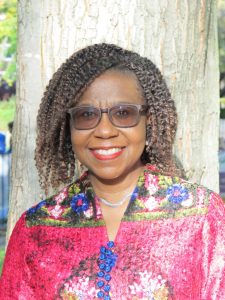The Society of Cosmetic Scientists, Nigeria (NICOS), has issued a compelling call to the beauty industry, urging a revolutionary shift towards developing personalized cosmetic products tailored to the unique needs of African skin.
During NICOS’s 2023 annual conference in Lagos, Grace Abamba, the Founding President, passionately emphasized the importance of acknowledging the distinct characteristics of African skin. She stressed that outdated, one-size-fits-all cosmetic approaches may not only pose challenges but also hinder inclusivity for individuals with diverse skin types and tones.
“In the development of cosmetic and personal care products that are safe and effective for African skin, ‘know thyself’ is good advice to better understand the many faces of African skin,” remarked Abamba.
NICOS’s advocacy aligns with the global push for more inclusive and sustainable beauty practices. Historically, the beauty industry has often overlooked the diverse range of skin tones and textures in the African population, designing products with a predominantly Western perspective.
Abamba highlighted potential risks associated with generic products that neglect the specific needs of African skin, emphasizing pigmentation variances, melanin content, and susceptibility to certain skin conditions. The call for Customized cosmetic solutions addresses these concerns.
The organization encourages collaboration among researchers, formulators, and manufacturers to celebrate the richness of African skin, fostering pride and identity among consumers.

Expressing concerns about industry adulteration, Olusola Ojo, NICOS’s co-founder and Vice President, underscored the importance of product safety, rigorous testing, and the sourcing of quality raw materials. NICOS aims to provide education and facilitate global collaboration to establish industry standards.
During the conference, Ikpong Umoh, Managing Director of Stellarchem Nigeria Limited, emphasized the environmental impact of cosmetics. Umoh advocated for sustainable ingredients and practices, calling for heightened awareness and industry responsibility towards climate change.
Umoh urged local cosmetic manufacturers to comply with environmental standards and appealed to the government to support local manufacturers while regulating the influx of foreign cosmetic products.

NICOS’s 2023 annual conference not only set the stage for transformative dialogues within the Nigerian cosmetic industry but also ignited conversations globally. It emphasized the importance of cultural sensitivity in product development, urging stakeholders to move beyond a Eurocentric model.
The conference underscored the need for Nigeria to leverage its abundant supply of natural ingredients in the cosmetics industry. Abamba noted that limited access to these ingredients, in terms of accessibility and scalability, is prompting Western cosmetic manufacturers to turn to biotech-produced alternatives.
The call for personalized cosmetic products tailored to African skin represents a pivotal moment in redefining beauty standards and embracing a more inclusive approach to skincare. As the beauty industry evolves, driven by consumer demand for authenticity and representation, NICOS’s advocacy echoes a broader societal shift towards embracing diversity in all aspects.










Comment here